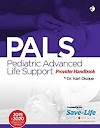Includes more than 250 NCLEX-style questions. Simple enough for students, but complex enough for RNs working in critical care, Critical care nursing demystified is a reader-friendly, focused review of the essentials of this difficult subject. The book includes learning objectives, key terms, and NCLEX-style questions at the end of each chapter. Featured learning objectives are introduced in each chapter, and then identified (through the key icon) wherever they occur in the chapter. Key terms included at the beginning of each chapter for quick review and mastery. NCLEX-style questions are at the end of every chapter for focused practice and study. All measurements are in SI units. The content you need to understand this complex subject--Provided by publisher. Read more...
Abstract: A bestselling author demystifies an essential nursing subject Read more...
Table of contents :
Content: Preface --
Chapter 1: Critical Care Nurse: --
Introduction --
Education and experience --
Standards, organizations, and certification: promoting excellence --
Communication and health care team members: calling the shots --
Defining the critical care nurse --
Regulatory issues that impact the critical care environment --
Future challenges for the critical care nurse --
Review questions --
Answers --
Chapter 2: Care Of The Patient With Critical Respiratory Needs: --
Anatomy and physiology --
Assessment skills for the high-risk respiratory patient --
Collaborative diagnostic tools --
Oxygen delivery systems --
Advanced airway techniques --
What is mechanical ventilation --
Commonly used respiratory medications in critical care for the patient on MV --
Respiratory conditions requiring critical care --
Review questions --
Answers --
Chapter 3: Care Of The Patient With Critical Cardiac And Vascular Needs: --
Anatomy and physiology of the cardiovascular system --
Assessment skills --
Collaborative diagnostic and laboratory tools --
Advanced procedural skills --
Cardiovascular medications used in critical care --
Medical CV conditions requiring critical care --
Surgical CV conditions requiring critical care --
Review questions --
Answers --
Chapter 4: Care Of The Patient With Critical Cardiac Rhythm Disturbance Needs: --
Assessment skills --
Cardiac electrophysiology --
How does cardiac monitoring really work? --
So what do these systems "see"? --
So how does a nurse do detective work on these rhythm strips? --
Types of basic rhythms --
Where do 12-lead ECGs enter the picture? --
Medications that help with rhythm stabilization --
Special cardiac devices to help maintain the patient's rhythm --
Cardiac arrest: your worst nightmare --
Review questions --
Answers --
Chapter 5: Care Of The Patient With Neurological Needs: --
Introduction --
Anatomy and physiology of the nervous system --
Neurological needs: assessment --
Assessing motor movements-strength and coordination --
Normal pupils --
Assessment of eye movements (EOMs) or extraocular movements --
Oculocephalic reflex or Doll's eyes movements --
Oculovestibular reflex or cold caloric test --
Respiratory patterns --
Additional assessments --
Palpation --
Percussion-deep tendon reflexes --
Other responses --
Auscultation --
Collaborative diagnostic tools --
Medications that help with symptoms --
Medical conditions requiring complex care --
Surgical conditions requiring complex neurological care --
Review questions --
Answers. Chapter 6: Care Of The Traumatized Patient: --
Introduction --
Mechanisms of injury (MOI) --
Classification of injuries --
Evaluating reports from the field --
Trauma center levels and classifications --
Medications used in trauma care --
Fluid volume replacement (FVR) --
Care of the patient with specific traumatic injuries according to the ABCs of trauma assessment --
Review questions --
Answers --
Chapter 7: Care Of The Patient With Endocrine Disorders: --
Introduction --
Major organs of the endocrine system to be addressed --
Review questions --
Answers --
Chapter 8: Care Of The Patient With Critical Renal Needs: --
Anatomy and physiology of the renal system --
Assessment skills --
Collaborative diagnostic and laboratory tools --
Medications commonly used in critical care --
Dialysis --
Acute and chronic renal failure --
Review questions --
Answers --
Chapter 9: Care Of The Patient With Critical Hematologic Needs: --
Anatomy and physiology of the hematologic system --
Assessment skills --
Collaborative diagnostic and laboratory tools --
Medications commonly used in critical care that affect the hematologic system --
Blood products used for hematologic problems --
Medical conditions that require critical care --
Review questions --
Answers --
Final exam questions --
Correct answers and rationales --
Index.





















